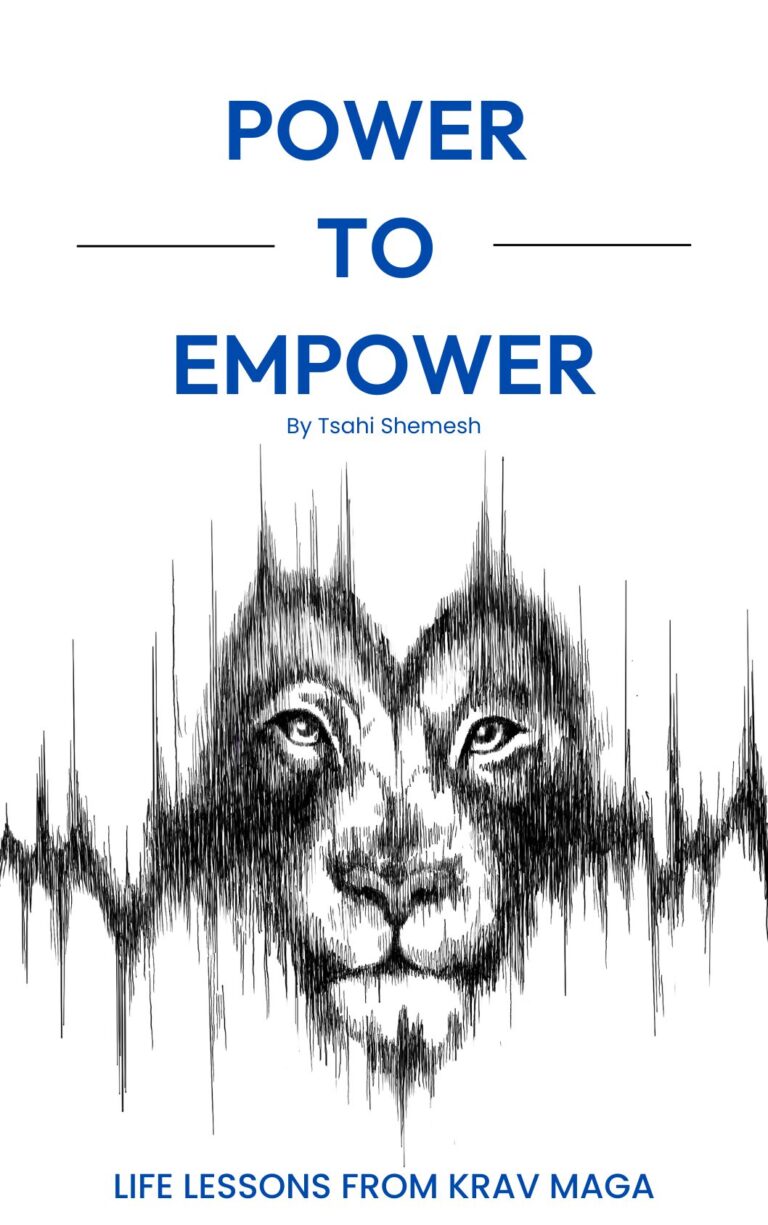How Psychopaths Pick Their Targets and How to Make Sure It’s Not You
When people first come to Krav Maga, they usually want to learn how to hit, block, and escape. That’s part of the work. But before you deal with the physical, you have to understand what leads up to it. Predators don’t randomly attack. They select. They watch. They test. And if you understand how they choose, you can make sure they don’t choose you.
Psychopaths have one clear advantage. They don’t care. They don’t care if they lie. They don’t care if they hurt someone. They don’t care about guilt, shame, or fear. And when you lack empathy, you can learn to manipulate people who still have it. That’s what makes them dangerous.
They are constantly reading people. Not in the mystical sense, but in the practical. They pay attention to who hesitates. Who avoids eye contact. Who seems unsure. Who will sacrifice their own comfort to avoid conflict. Who tries too hard to please.
What they’re looking for is a pattern they can exploit. And most of that pattern is visible within seconds.
Gait and Posture
In one study, psychopaths were shown silent video clips of people walking. Without knowing anything else about the subjects, they could accurately identify people who had been assaulted in the past. They weren’t guessing. They were responding to subtle signs of body language. The way people move, how their shoulders fall, how they place their feet, how often they look around. It tells a story.
This isn’t instinct. It’s calculation. People who have been hurt before often carry that story in their body. And predators recognize it. They count on people not realizing what they’re projecting.
Who They Target Isn’t About Weakness
You don’t have to be small, young, or female to be targeted. You just have to appear manageable. You just have to look like someone who won’t make a scene. Who won’t say no. Who will question their own instincts instead of trusting them.
This is true with strangers, and it’s just as true with people you know.
Many predators don’t start out by threatening. They start by earning trust. They find ways to be useful. They compliment. They offer help. They wait for the moment when you’re vulnerable and looking for support. That’s when they start controlling the dynamic.
It’s harder to see, because it doesn’t come with screaming or physical harm. It comes with subtle pressure. With manipulation. With gaslighting. With crossed boundaries that are quickly justified or disguised as care.
These Are the Patterns to Watch For
Here is what predators notice and respond to:
Lack of awareness
People who are distracted, checked out, or absorbed in their phones are easier to approach. They can’t defend themselves if they don’t see the approach coming.
Hesitation to speak up
If someone jokes at your expense or crosses a line and you let it slide, they remember. If you apologize when you did nothing wrong, they notice. If you try to explain instead of set a boundary, they feel more confident pushing further.
Avoidance of conflict
Many people are conditioned to keep the peace. That works well in polite society. But predators use that to their advantage. If you won’t push back, you give them room to move.
Emotional isolation
You don’t have to be physically alone. If you feel disconnected, uncertain, or out of place, you may seek validation from the wrong people. Predators are good at recognizing who is looking for acceptance and offering it at the right moment.
Over-compliance
If your instinct is to obey authority, trust people too quickly, or say yes to avoid discomfort, that behavior makes you easier to control. Especially in repeated or professional environments.
What Training Actually Does
Good self-defense training doesn’t just teach technique. It teaches perception. It gives people back the confidence they lost or never had. It teaches them to walk like they know what they’re doing. To make decisions without second-guessing. To trust their gut. To know when to say no. And when to act without waiting for more certainty.
It also makes people more aware of how others move. Who is in control of the room. Who is watching but not participating. Who keeps testing small boundaries to see what they can get away with.
In training, people change how they stand, how they breathe, and how they respond to pressure. That change is visible. And predators see it. You stop looking like someone they can manipulate. You stop acting like someone who will stay quiet.
Everyone Communicates, Even in Silence
Whether you realize it or not, you are always telling people how to treat you. Your posture. Your tone. The way you respond to discomfort. The way you avoid directness. It all sends a message.
This is something we explore in public speaking and leadership, but it’s no less relevant to self-defense. The world is watching you even when you aren’t performing. Especially those looking to take advantage of a blind spot.
Predators read people the way a trained fighter reads movement. They look for where you’re off balance. They study how quickly you give ground. They search for signs of self-doubt and hesitation. And they move toward it.
You Are Not to Blame. But You Do Have Choices
If you’ve been targeted, manipulated, or hurt in the past, that’s not your fault. You didn’t choose to be treated that way. But once you know the patterns, once you see the signs, it’s on you to respond differently.
That doesn’t mean you need to be perfect. It means you need to be present. To stop ignoring discomfort. To stop playing small so someone else can feel powerful.
Responsibility means taking yourself seriously. It means you no longer confuse being kind with being passive. It means you don’t explain away behavior that crosses your lines. It means you stop treating your instincts like an inconvenience.
You do not need to live in fear. But you do need to be sharp.
Fight like the person you are afraid of. The one who doesn’t hesitate. The one who doesn’t wait for approval. The one who sees clearly and moves with purpose. But be kinder if you don’t have to fight. That’s what sets you apart.
Predators don’t expect resistance. They expect silence and compliance.
Do something amazing,
Tsahi Shemesh
Founder & CEO
Krav Maga Experts
Why Women’s Perception of Self-Defense is Usually Wrong!
Do you fear public speaking?
Why “Good People” Are Often the Least Prepared

